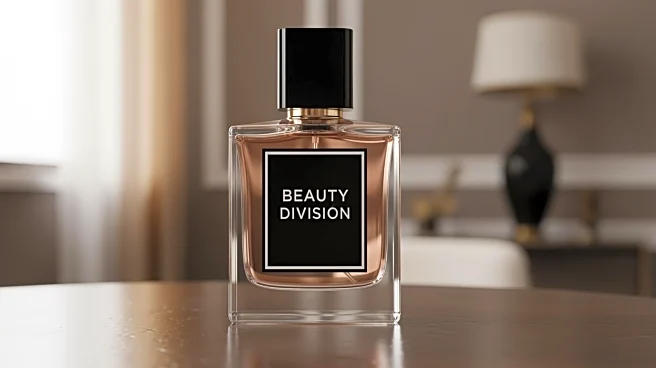What's Happening?
Kering, the French luxury conglomerate, has decided to sell its beauty division to L'Oréal for $4.6 billion. This decision comes just two years after Kering established the division, which included the acquisition
of Creed for $3.8 billion. The beauty unit generated $376 million in revenue last year, accounting for about 2% of Kering's total revenue. The move marks a significant shift in strategy under the leadership of Kering's new chief executive, Luca de Meo, who was appointed in June. The sale is seen as a response to declining sales in Kering's core fashion brands, such as Gucci, which reported a 25% drop in sales. The decision to divest from beauty reflects the challenges Kering faced in managing a business that requires specialized knowledge in formulation, regulation, and distribution, areas where L'Oréal excels.
Why It's Important?
The sale of Kering's beauty division to L'Oréal highlights the complexities and challenges luxury fashion brands face when diversifying into the beauty sector. For Kering, the decision to exit the beauty business allows it to refocus on its core fashion operations, potentially stabilizing its financial performance. For L'Oréal, acquiring Kering's beauty assets, including the Creed brand, strengthens its position in the luxury fragrance market. This acquisition could lead to increased competition in the beauty industry, particularly in the high-end fragrance segment. The move also underscores the importance of strategic partnerships in the beauty industry, as seen with L'Oréal's successful management of brands like YSL Beauté.
What's Next?
Following the sale, Kering is expected to concentrate on revitalizing its fashion brands, with a focus on speed to market and reducing reliance on traditional runway shows. For L'Oréal, the integration of Kering's beauty brands will require strategic marketing and distribution efforts to maximize their potential. The acquisition may also prompt other luxury brands to reconsider their strategies in the beauty sector, potentially leading to further consolidation or strategic partnerships. Additionally, Coty, which currently holds the license for Gucci Beauty, may face challenges as its license is set to expire in 2028, potentially impacting its financial performance.
Beyond the Headlines
The divestment by Kering could signal a broader trend among luxury brands to reassess their involvement in the beauty industry, particularly in a challenging economic environment. The decision also highlights the importance of expertise and specialization in managing beauty brands, which differ significantly from fashion in terms of market dynamics and consumer expectations. This development may encourage other luxury conglomerates to focus on their core competencies or seek partnerships with established beauty companies to leverage their expertise.








